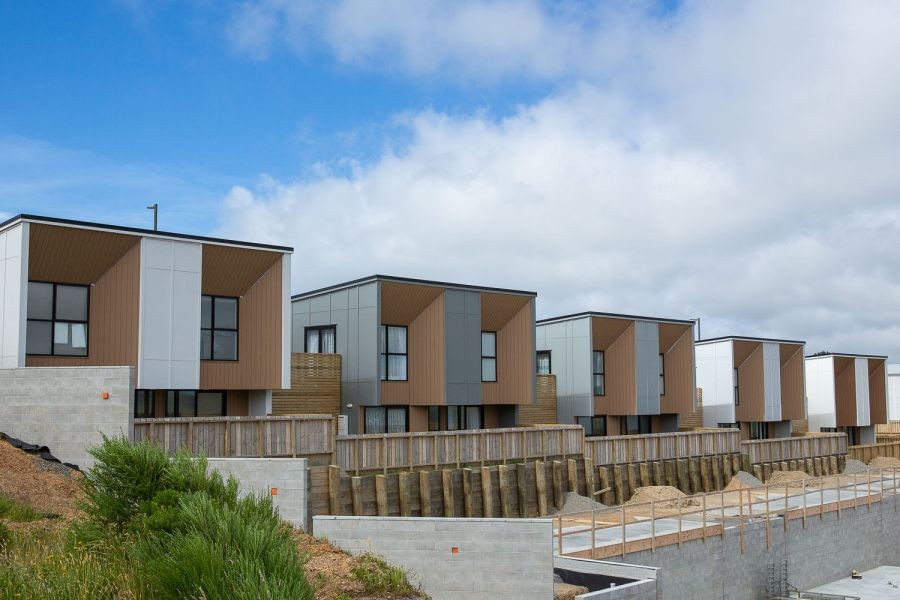In the lush landscapes of New Zealand, the quest for affordable housing has become a pressing issue that impacts communities nationwide. As property prices soar and the demand for housing outstrips supply, New Zealanders face unique challenges in securing affordable homes. Understanding the intricacies of building affordable housing is crucial for policymakers, investors, and communities alike. This article delves into practical strategies, real-world examples, and insightful data to illuminate the path forward for affordable housing in New Zealand.
Understanding the Affordable Housing Landscape in New Zealand
New Zealand's housing market has been characterized by rapid price increases, with Stats NZ reporting a 20% rise in residential property prices from 2021 to 2023. This surge has exacerbated the affordability crisis, especially in urban centers like Auckland and Wellington. The government's KiwiBuild initiative, aimed at increasing housing supply, has faced criticism for not meeting its targets, highlighting the complexities of addressing this issue.
Pros and Cons of Current Housing Strategies
Several strategies are being employed to tackle housing affordability in New Zealand, each with its own set of advantages and challenges.
Pros
- Government Initiatives: Programs like KiwiBuild aim to deliver thousands of affordable homes, providing a structured approach to increasing supply.
- Community Housing Providers: These organizations play a crucial role in offering low-cost housing options, often with support services that foster community well-being.
- Public-Private Partnerships: Collaborations between the government and private developers can leverage resources and expertise to streamline housing projects.
Cons
- Land Availability: Limited land supply in high-demand areas remains a significant barrier to building affordable homes.
- Regulatory Hurdles: Complex planning and zoning regulations can delay housing projects, increasing costs and reducing efficiency.
- Funding Challenges: Securing adequate funding for large-scale housing projects is often problematic, especially for smaller developers.
Case Studies: Learning from Success
Case Study: Hobsonville Point – A Model for Urban Development
Problem: The Auckland suburb of Hobsonville faced a growing demand for housing as the city expanded. Traditional development models were insufficient to meet the community's needs.
Action: The Hobsonville Land Company adopted a master-planned approach, integrating affordable housing alongside market-rate homes, community facilities, and green spaces. They emphasized sustainability and community engagement throughout the process.
Result: The project has been lauded as a success, with over 4,500 homes built, including affordable units. The development has attracted diverse demographics, fostering a vibrant community.
Takeaway: Master-planned developments that focus on sustainability and community engagement can effectively address housing shortages while enhancing quality of life. New Zealand can replicate such models in other urban areas to alleviate housing pressures.
Debunking Common Myths About Affordable Housing
Myths surrounding affordable housing often hinder progress and perpetuate misconceptions.
Myth: Affordable housing devalues surrounding properties. Reality: Studies, such as those conducted by the NZ Property Investors’ Federation, indicate that well-designed affordable housing can enhance community value and improve property prices over time.
Myth: Only government intervention can solve the housing crisis. Reality: While government support is crucial, private sector involvement and public-private partnerships are equally vital in addressing housing needs effectively.
Future Trends and Predictions
As New Zealand continues to grapple with housing affordability, several trends and predictions offer a glimpse into the future.
Eco-Friendly Housing Solutions: Sustainable building practices will become increasingly important, driven by environmental concerns and policy incentives.
Technological Integration: The use of technology, such as modular construction and smart home systems, will streamline building processes and reduce costs.
Policy Shifts: Anticipated policy changes, such as revised zoning laws and increased funding for community housing, will reshape the housing landscape in coming years.
Final Takeaways
- Government and private sector collaboration is key to addressing housing affordability in New Zealand.
- Adopting innovative development models, such as master-planned communities, can provide sustainable and inclusive housing solutions.
- Debunking myths and fostering a dialogue around affordable housing will empower stakeholders to make informed decisions.
As we navigate the complexities of housing affordability, the collective efforts of policymakers, developers, and communities will be essential in transforming New Zealand's housing market. By embracing innovation and collaboration, we can build a future where affordable housing is accessible to all.
People Also Ask
How does affordable housing impact New Zealand's economy? Affordable housing enhances economic stability by reducing living costs, freeing up disposable income, and stimulating local economies through increased consumer spending.
What are the best strategies for implementing affordable housing? Experts recommend a combination of government initiatives, public-private partnerships, and sustainable building practices to effectively increase the supply of affordable housing.
What upcoming changes could affect affordable housing in New Zealand? Policy updates focusing on zoning laws and funding for community housing are expected to significantly influence the affordable housing landscape by 2026.
Related Search Queries
- Affordable housing initiatives in New Zealand
- KiwiBuild program success
- Impact of zoning laws on housing
- Sustainable housing solutions NZ
- Public-private partnerships in housing
- Modular construction in New Zealand
- Community housing providers NZ
- Future of affordable housing in New Zealand
- Housing crisis solutions in New Zealand
- Economic benefits of affordable housing









































Pet Grooming
3 months ago